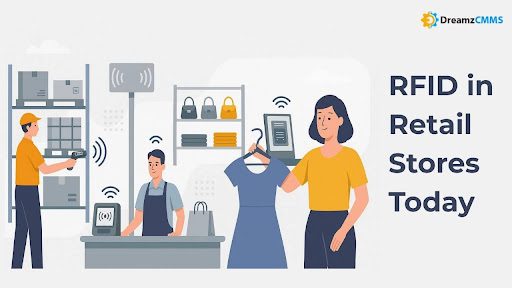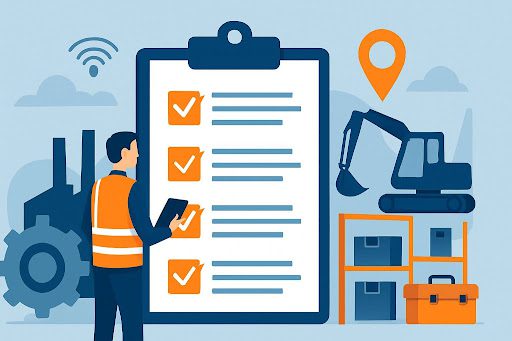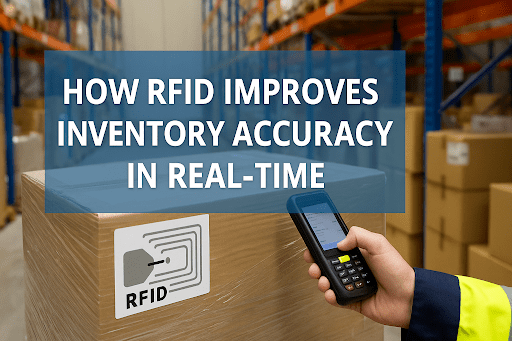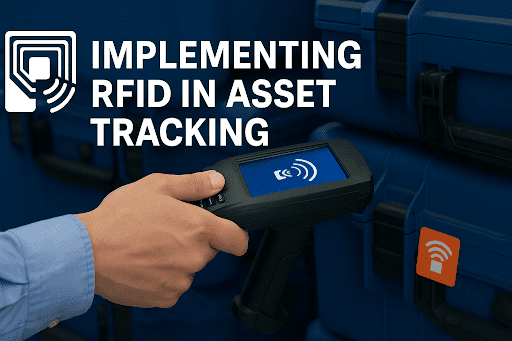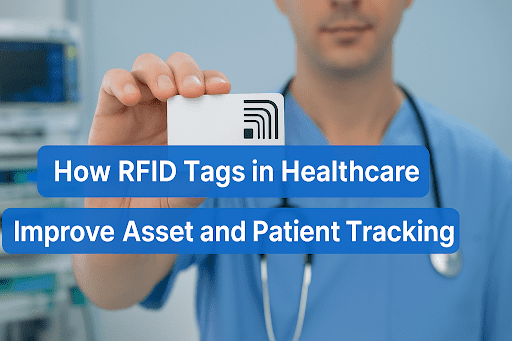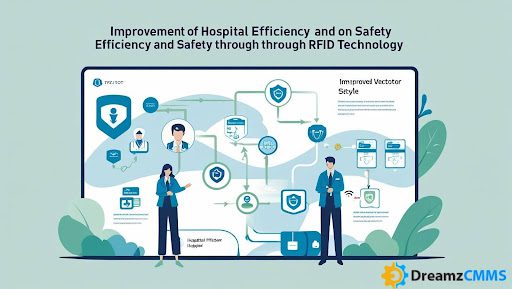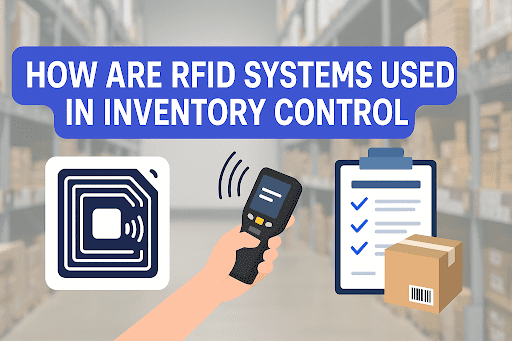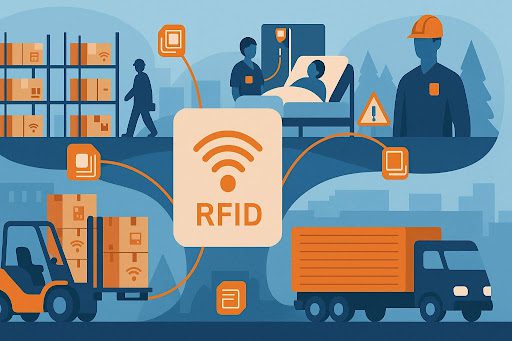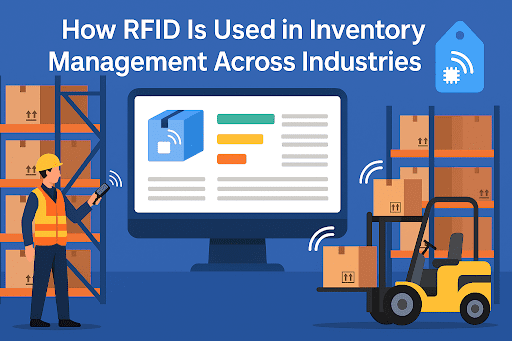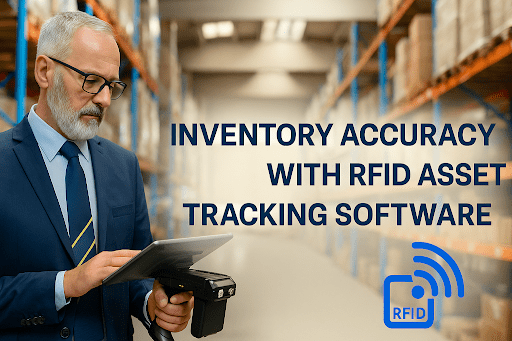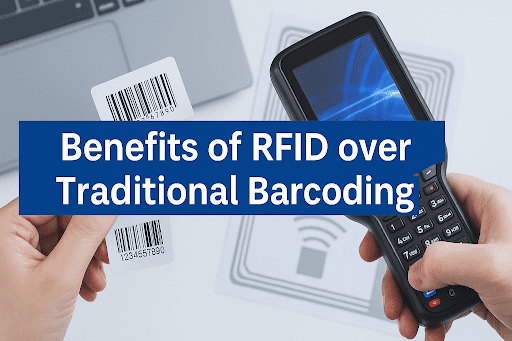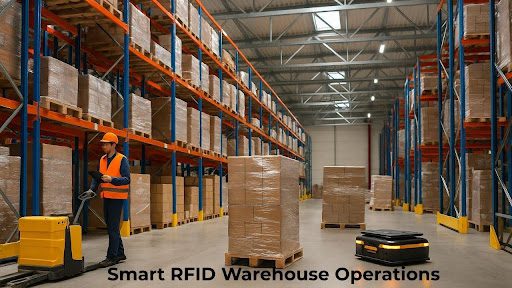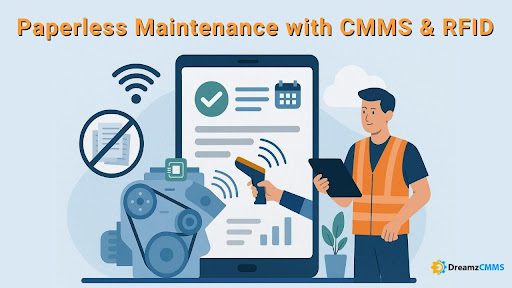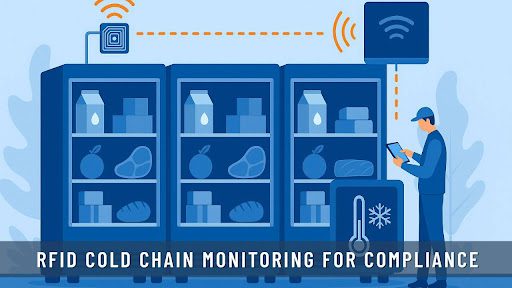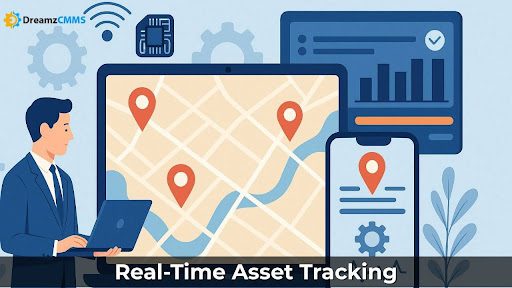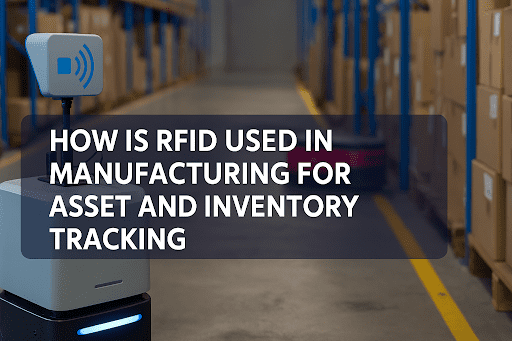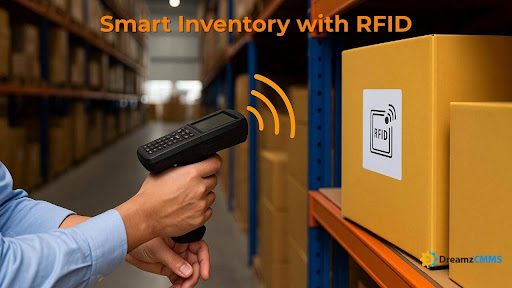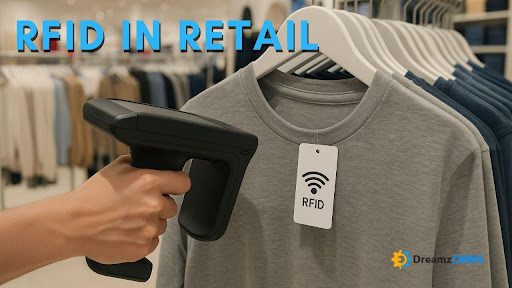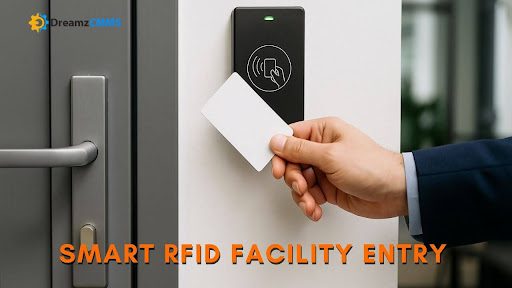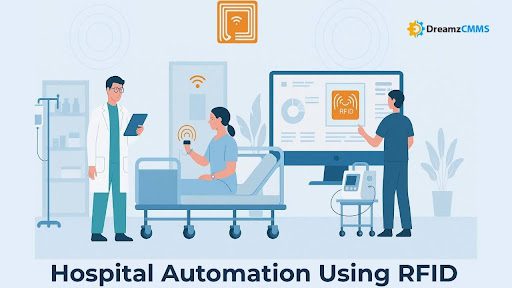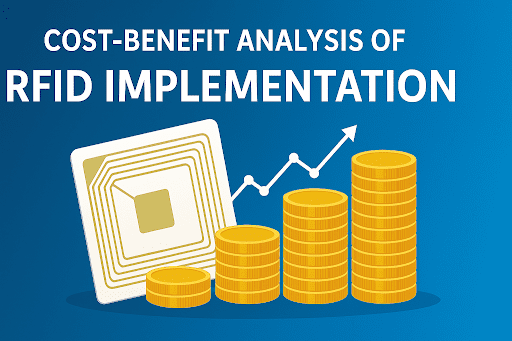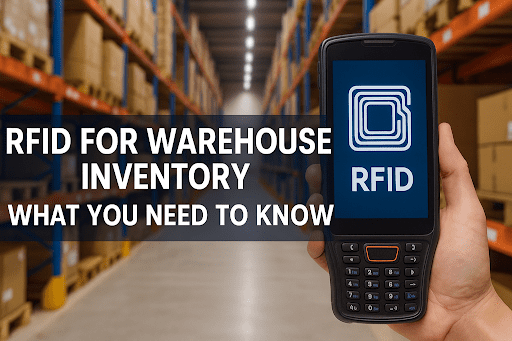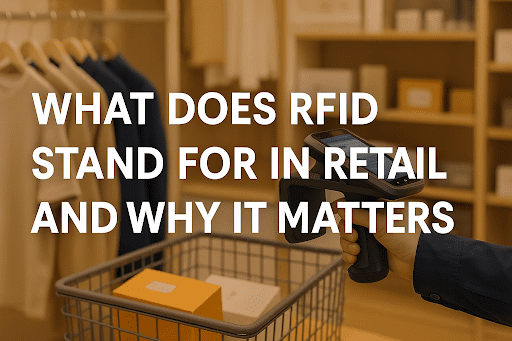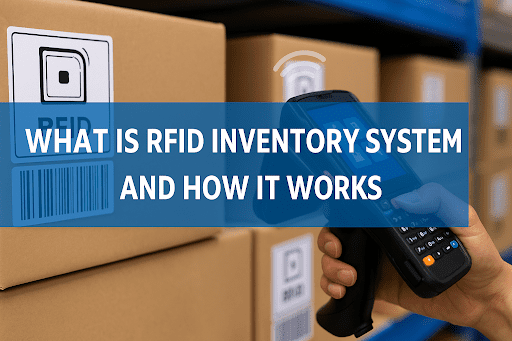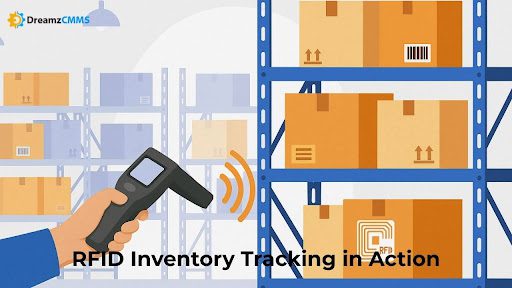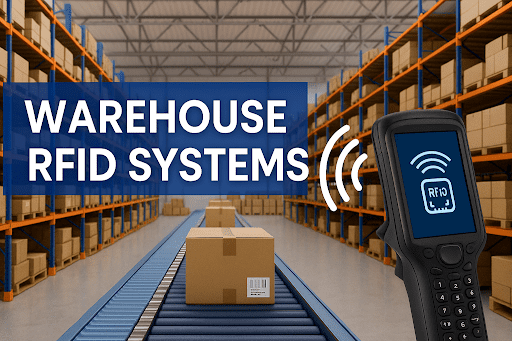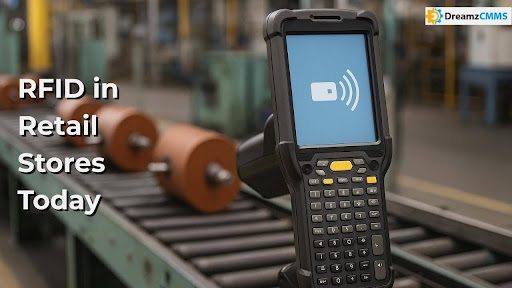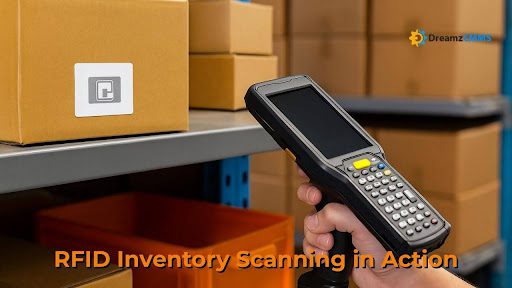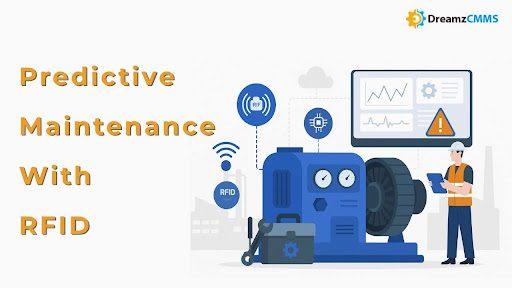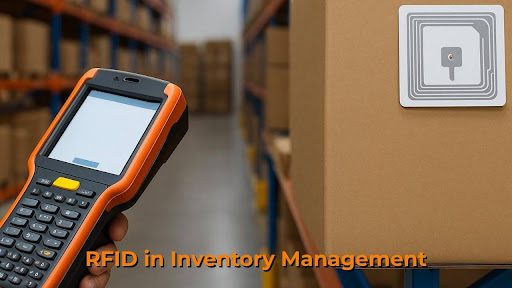 BACK TO Blog
BACK TO Blog
Asset Rental Management
RFID Asset Tracking
Shipment Tracking Using RFID Tags – A Complete Guide
- August 29, 2025
- DreamzCMMS Team
- 10 minutes read
- August 29, 2025
- DreamzCMMS Team
- 10 minutes read
Logistics and supply chain operations experience a total transformation because of global trade expansion and e-commerce growth together with customer demands for rapid delivery services.
RFID tags represent the transformative solution for shipment tracking operations. The ability of RFID to automatically track cargo without human interaction provides logistics and freight operations and global supply chains with unmatched transparency and operational efficiency.
This guide provides an explanation of RFID shipment tracking functionality together with its advantages and suitable applications as well as guidance for businesses to select RFID shipment tracking solutions that maintain competitiveness.
Asset Maintenance Management Software enables organizations to optimize their operationsDreamzCMMS offers powerful software solutions that help organizations streamline maintenance operations to achieve better asset control while minimizing downtime.The entire operational process becomes more reliable through our asset maintenance management software. Asset Maintenance Management Software |
What is RFID and How Does It Work in Shipment Tracking?
RFID represents a technology that identifies data on RFID tags through radio waves. The tracking system operates independently from line-of-sight scanning requirements.
RFID shipment tracking systems need three primary components to function:
- The RFID tracking system employs RFID Tags which are small electronic chips with antennas that can be connected to packages or pallets or containers.
- The RFID Readers function as automatic data capture devices which operators position at warehouse gates and ports and trucks for reading tag data.
- RFID Logistics Software operates as a centralized system to process tag data and deliver shipment status updates while offering visibility dashboards to users.
A tracking system updates automatically when cargo passes through readers to provide real-time visibility for shipments without manual intervention. The RFID Asset Tracking basics receive detailed explanation in our comprehensive guide (What is RFID Asset Tracking).
Why Businesses Need RFID Tags for Shipment Tracking
Logistics and supply chain operations face mounting pressure to establish faster delivery systems along with improved safety measures and enhanced operational transparency. The requirement of human scanning with barcode tracking systems creates errors and delays as well as causes items to become misplaced.
RFID tags shipment tracking provides organizations with these benefits:
- Automated Scanning – The system operates automatically because it does not require direct sight for scanning.
- Real-Time Updates – The system provides immediate updates about cargo movements that spread across the entire supply chain network.
- Higher Accuracy – The system provides better precision by decreasing the chances of shipment loss along with incorrect product labeling.
- Condition Monitoring – Businesses can track temperature and humidity levels as well as detect shocks through sensor-equipped tags.
RFID shipment tracking solutions function best for retail and pharmaceuticals and food and beverage and automotive and global freight operations. The healthcare sector applies RFID through life-saving and cost-saving applications which can be seen in RFID in Hospitals.
How RFID Shipment Tracking Solutions Work Step-by-Step
The process of implementing RFID tags for tracking shipments consists of three basic yet effective stages:
- Tagging Shipments – Shipments receive RFID tags during the tagging process for packages along with pallets and containers. Smart tags equipped with sensors become necessary for monitoring valuable cargo because they track conditions.
- Reader Deployment – The installation of RFID readers should occur at warehouse locations as well as loading docks and entry and exit points of trucks and distribution centers.
- Data Transmission – The RFID system records data from tagged items that pass through checkpoints before sending it to the logistics system.
- Centralized Software Update – The RFID package tracking system updates shipment status in real time through its central software which users can access through web or mobile dashboards.
- Visibility Across the Supply Chain – The system enables stakeholders to monitor shipments in real time which provides them with location data and arrival expectations and delay information to make proactive decisions.
Organizations that explore IoT-enabled logistics can create a powerful visibility and control ecosystem through Real-Time Asset Tracking creates a powerful ecosystem of visibility and control.
Key Benefits of RFID Shipment Tracking Systems
Organizations using RFID tags for shipment monitoring experience quantifiable improvements in their logistics operations as well as their retail and manufacturing operations.
- Real-time visibility across supply chains
- Complete traceability results in lower theft and loss rates.
- The process of automated scanning enables faster throughput rates.
- Sensors monitor cargo conditions to prevent damage of sensitive goods.
- Customers receive exact delivery times through improved experience services.
- Lower operational costs through reduced errors and paperwork
Enterprise-level solutions like RFID Asset Tracking Software work best when paired with shipment visibility for complete end-to-end control of logistics and warehousing and delivery operations.
Use Cases of RFID in Shipment Tracking
RFID shipment tracking solutions show adaptability in serving various industries.
Retail & E-commerce
The retail industry manages high delivery quantities while handling return operations and delivering swift deliveries without mistakes. Retailers can use RFID tags shipment tracking to:
- Track inbound shipments in real time to prevent stockouts.
- Automated systems enable quicker returns handling by registering received products.
- The tracking performance of last-mile deliveries gets better through RFID package monitoring systems.
Pharmaceutical Industry
The implementation of RFID shipment visibility solutions provides two essential benefits.
- Medicine and vaccine transportation happens within safe temperature ranges.
- The automatic collection of expiration dates and batch numbers occurs while items are in transit.
- Companies meet FDA and UDI compliance requirements.
Pharmaceutical firms protect patient safety through cargo tracking RFID tags while avoiding costly fines by integrating condition sensors.
Food & Beverage
The transportation of perishable goods needs strict monitoring systems to ensure safety. Businesses can implement shipment monitoring RFID tags to:
- The tracking system monitors frozen foods together with dairy products as well as other temperature-sensitive products.
- The system generates alerts when storage conditions move beyond defined thresholds to prevent spoilage.
- The tracking system enables companies to locate specific shipments when recall operations become necessary.
A worldwide beverage company implements RFID transportation tracking tags to maintain temperature consistency when shipping products between borders.
Automotive Logistics
The automotive supply chain operates as a complex system because thousands of components move through countries every day. The use of RFID logistics tracking tags allows manufacturers to:
- The tracking system monitors spare parts and assemblies during their journey from suppliers to factory locations.
- The delivery of misplaced shipments results in production delays for vehicles.
- Faster delivery times for replacement parts enables better after-sales service to customers.
The tracking system remains vital for JIT manufacturing because single delayed shipments can stop entire production lines.
International Freight
The customs clearance process together with tracking containers functions as primary barriers during international trade operations. The tracking system provides:
- The system speeds up customs clearance through verified cargo information.
- The system provides real-time tracking from ships to ports to airports.
- The tracking system minimizes the chances of cargo theft or loss that occur throughout long-distance transport.
The freight tracking RFID technology implemented by Maersk shipping company helps secure containers and delivers ongoing shipment status reports to customers.
Transportation & Logistics Providers
The service delivery of third-party logistics (3PL) and transport providers requires both reliability and cost efficiency. The implementation of RFID shipping tracking systems enables providers to:
- The system tracks trucks and trailers together with shipping containers as they move in real time.
- Optimize fleet utilization by identifying underused assets.
- The system enables accurate ETA delivery estimates and minimizes delays that result in additional expenses.
Logistics providers achieve customer retention through transparency in their operations which establishes trust within a competitive market environment.
Asset Rental and Leasing Operations
The rental or leasing of equipment along with tools and vehicles forms part of service operations for numerous businesses. Companies can achieve better asset management by merging RFID tags logistics management with Asset Rental Management Software.
- The tracking system helps businesses minimize their losses by monitoring rental items during their entire lifecycle from pickup through return.
- The system provides better asset utilization because it shows what assets are being used as well as those that sit idle or are moving between locations.
- The automation of rental contract enforcement becomes possible through the connection of RFID data to billing cycles.
This system delivers great value to construction and mining operations as well as equipment leasing businesses since lost assets and late returns lead to substantial cost increases.
The integration of Asset Rental Management Software with RFID systems enables businesses to track assets more effectively while minimizing losses and maximizing asset utilization especially when they rent or lease equipment as part of their operations.
Future of Shipment Tracking with RFID
Modern technology advances are developing RFID logistics tracking tags to create smarter and faster and more resilient global supply chain systems.
Real-time Condition Monitoring through IoT Integration with RFID Technology
Businesses can use RFID combined with IoT sensors to monitor shipment locations as well as track their condition. The combination of RFID-IoT sensors in refrigerated containers enables automatic temperature safety alerts to be sent through the system.
Blockchain Security for Tamper-Proof Supply Chains
The increasing need to combat counterfeiting and fraud leads companies to use blockchain technology with RFID package tracking systems which builds an unalterable shipment documentation system. The technology provides significant value to pharmaceuticals alongside luxury goods and high-value electronic items.
AI Forecasting to Anticipate Delays
Through its application of artificial intelligence RFID shipment data analysis enables organizations to discover patterns and identify potential bottlenecks before taking preventive measures. Through AI technology it becomes possible to forecast both port congestion levels and delivery SLA violations by shipments.
5G Networks for Faster RFID Logistics Updates
The deployment of 5G technology delivers ultra-low latency communications which enables immediate shipment RFID tracking updates to reach logistics dashboards worldwide. Industries requiring quick action such as just-in-time manufacturing and urgent medical supply delivery need this capability.
These advancements will create predictive shipment insights which have the same impact on supply chain management as predictive maintenance does in manufacturing and asset-intensive sectors.
Best Practices for Implementing RFID Shipment Tracking Systems
The implementation of RFID transportation tracking tags requires businesses to follow these established best practices:
- Establish precise objectives to determine which objectives you will prioritize between reducing lost cargo and compliance management and ETA improvement and cost reduction.
- Businesses should conduct ROI studies to evaluate potential savings from automation combined with loss prevention and improved throughput as a basis for funding the initial expenses.
- The selection of appropriate RFID tag technology requires low-cost passive tags for standard shipments yet active or sensor tags for valuable or temperature-dependent items.
- The first step of RFID implementation involves launching pilot programs which test operational efficiency in specific shipping routes or warehouses or product categories before expanding throughout the company.
- The implementation of RFID shipment tracking demands employee training programs which include workshops and manuals and hands-on practice to teach staff about RFID operations and their advantages.
- RFID shipment data needs to connect with ERP and CMMS and WMS systems to achieve complete supply chain transparency.
- The implementation of RFID analytics dashboards enables continuous monitoring which helps organizations identify operational inefficiencies for optimizing warehouse processes.
Conclusion: The Future is RFID-Powered Shipment Tracking
The survival of today's global supply chain depends on visibility together with accuracy and speed because these capabilities have become essential tools for survival. Organizations that implement RFID tags for shipment tracking achieve real-time cargo monitoring alongside reduced losses and faster throughput and enhanced customer satisfaction.
Businesses that use automated shipment tracking RFID along with smart shipment tracking RFID achieve operational excellence by controlling costs and enhancing delivery speed and safety.
Your business success in logistics depends on implementing an RFID package tracking system to achieve smarter and more efficient global operations.
Transform Your Logistics with DreamzCMMS
Take your shipment visibility and supply chain efficiency to the next level with DreamzCMMS. From asset tracking to intelligent logistics, we deliver smarter tools for modern businesses.
DreamzCMMS | Free Demo
Ready for More?
Talk to one of our CMMS experts and see how DreamzCMMS can simplify your maintenance operations.
Book a free consultation